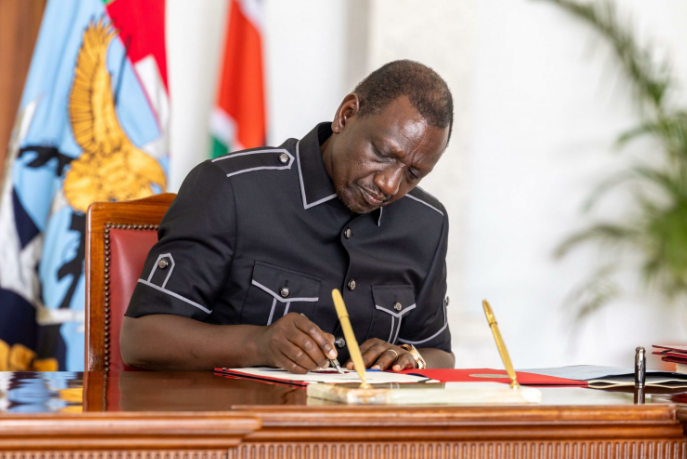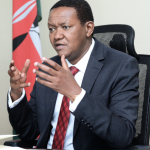President William Ruto, responding to significant backlash from students and the public, has announced the formation of a National Working Committee to review the new university education funding model. This announcement was made in a Special Gazette Notice dated September 16.
The committee will include four sub-committees, each focusing on different aspects of the funding model. These sub-committees are:
1. Reviewing and refining the new funding model for universities and Technical, Vocational Education and Training Institutions (TVETs).
2. Addressing appeals related to the categorization of students for scholarships and loans.
3. Examining the structure of student loans.
4. Reviewing the cost of university academic programs.
The committee will be chaired by Japheth Micheni Ntiba, a former Permanent Secretary, and will consist of 129 members, including chairpersons and co-chairpersons of the four sub-committees.
President Ruto stated, “Now therefore, I, William Samoei Ruto, President of the Republic of Kenya and Commander in Chief of the Defence Forces, in exercise of the powers conferred upon me by the Constitution and the Statute Laws of the Republic of Kenya, do order and direct that the National Working Committee on Review of the New University Education Funding Model is hereby established.”
The committee is set to serve for eight weeks from the date of the notice.
This move follows a town hall meeting at the Kenyatta International Convention Centre (KICC) last month, where President Ruto faced criticism from students regarding the new funding model. Despite his defense that the most vulnerable would not be disadvantaged and that funding for scholarships and loans for extremely needy students would increase from 80% to 95%, many students questioned the feasibility and clarity of the model’s implementation.
Students have questioned the government’s rapid implementation of the new university education funding model without extensive stakeholder engagement. Students from Kenya Methodist University (KeMU) and Jomo Kenyatta University of Agriculture and Technology (JKUAT) expressed concerns about the speed of the rollout given the model’s technical complexities.
The new funding model uses the Means Testing Instrument (MTI) to assess the financial assistance each student should receive based on self-reported family background information, including monthly income. President William Ruto, in his announcement, acknowledged rising concerns about the MTI’s effectiveness and the inconsistency in costing methodologies for university programs. He stated that a unified approach is needed to build trust and ensure fairness.
The newly formed National Working Committee will focus on several key areas:
1. Reviewing the effectiveness of the New Funding Model in providing access to quality and affordable higher education.
2. Evaluating the implementation of the model and the MTI’s ability to reflect students’ socio-economic realities.
3. Assessing the appeals process related to student categorization and resolving challenges related to eligibility bands.
4. Analyzing and recommending improvements for the cost of university programs and mobilizing resources for funding.
5. Reviewing the structure of student loans, including terms, interest rates, penalties, and repayment periods.
The committee will consist of four workstreams:
– Review and Refinement of the New Funding Model for Universities and TVETs: Chaired by Prof. Karuti Kanyinga and co-chaired by Dibora Hirbo.
– Appeals Arising from Student Categorization: Headed by Walubengo Waningilo and co-chaired by Lucy Machugu.
– Structure of Student Loans: Chaired by Robert Oduor Otieno and co-chaired by Aron Kiprotich Bett.
– Review of the Cost of University Academic Programmes: Chaired by Prof. Mohamed S. Rajab and co-chaired by Patrick Malanga.
The committee is tasked with conducting a thorough review and making recommendations to ensure that the funding model supports fair and equitable access to higher education.



